Natural Gas Composition Services
Need confidence in your natural gas composition? Protect your equipment, ensure employee safety, and maximize your gas value with Element's comprehensive natural gas composition testing services. Our state-of-the-art gas chromatography analysis provides accurate, standards-compliant results that help you make informed decisions about your gas assets. From custody transfer to process optimization, we deliver precise composition data when you need it.
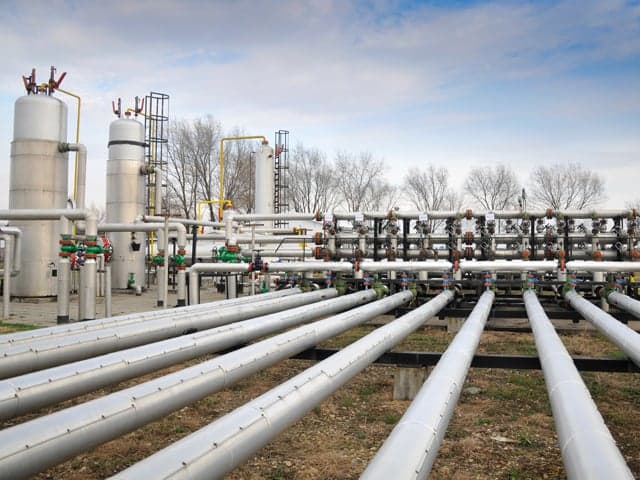
What are Natural Gas Composition Services at Element?
Natural gas composition testing is the analytical process of determining the exact components present in natural gas samples. At Element, we provide comprehensive compositional analysis using advanced gas chromatography to identify and quantify all components in your gas stream. Our testing services cover both natural gas and liquid petroleum hydrocarbons, helping you ensure quality, safety, and value.
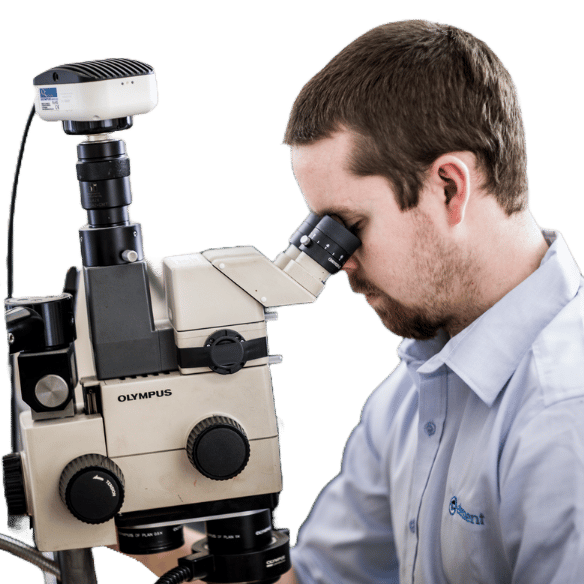
What Can Element Offer You For Natural Gas Composition Services?
Key tests offered
Key tests offered
Element offers a complete suite of industry-standard tests tailored to your specific needs:
- Extended gas analysis (C12+, C15+) for detailed composition profiling
- Hydrocarbon dew point calculations and analysis
- Specialized sulfur testing and speciation
- Custom calibration gas standards
- Comprehensive liquid hydrocarbon analysis
Our services
- Gas Analyses
- Custom Specialty Calibration Gas & NGL Standards & Equipment
- Extended Gas Analysis (C12+, C15+) determining heating values, density, pseudocritical properties, relative molecular mass, and petroleum liquid content.
- Gas Analysis (GPA 2261, D-1945)
- Gas Analysis with H2S
- Gas BETX (GPA 2286)
- Gas Capillary (GPA 2286)
- H2O-Stain Tube (D-4888)
- H2S-Stain Tube (D-4810, GPA 2377)
- Helium Content (GPA 2261, D-1945)
- Hydrocarbon Dew Point Calculation
- Hydrocarbon Dew Point with Capillary Analysis
- Hydrogen Content (GPA 2261, D-1945)
- Karl Fisher in other products
- Karl Fisher water in Propane/Butane
- LDEQ Certified GPA Method 2286
- Low-Level Hydrocarbon by GC
- Low-Level Oxygen by GC
- Methanol Testing
- Mole Sieve with Argon Carrier
- Mole Sieve with Helium Carrier
- Olefin Gases by FID
- Oxygen Content (GPA 2261, D-1945)
- Refinery Gas Analysis
- RSH-Stain Tube (D-1988)
- Sulfur Speciation (D-5504, GPA 2199)
- Total Sulfur (D-5504, GPA 2199)
- Liquid Analyses
- API Gravity (w/o shrink) (D-287)
- Ash and Wax Analysis
- Asphaltenes Analysis
- ASTM Distillation (D-86)
- Carbon Residue Analysis
- Comp BS&W
- Comp Shrink w/API
- Compositional analysis to C7+, C12+, C30+, and C100+
- Condensate Analysis (IN HOUSE)
- Condensate Capillary (GPA 2186 MOD)
- Copper Strip (D-1838)
- Density Testing
- Flash Gas (per stage)
- H2S - Stain Tube
- H2S Analysis (chrom.)
- Mole Sieve with Argon Carrier
- Mole Sieve with HE Carrier
- Olefin Liquids by FID
- Organic Chlorides Analysis
- Organic Phosphorus Analysis
- Pour Point, Cloud Point, and Flash Point Analysis
- Product Analysis (GPA 2177, D-2597)
- Product BETX (GPA 2186)
- Product Capillary (GPA 2186)
- Reid Vapor Pressure
- RSH – Stain Tube
- Sediment and Water Analysis
- Shrink
- Spot BS&W
- Spot Shrink w/API
- Sulfur In Oil Analysis by X-Ray Fluorescence (ASTM D4294)
- Sulfur Speciation (GPA 2199, D-5623)
- Total Sulfur Analysis
- Viscosities Analysis
Components and materials we test
Components and materials we test
Transform your natural gas testing process with Element's comprehensive analysis capabilities. We handle everything from basic natural gas composition to complex hydrocarbon liquids, including LNG, heavy oil, and bitumen. Our testing covers the full spectrum of components that matter to your operations, helping you maintain quality and safety standards while optimizing your processes.
Methods and solutions offered
Methods and solutions offered
Benefit from our advanced methodological approach that combines:
- GPA, ASTM, and API standardized testing procedures
- Custom sampling solutions for pressurized gas and liquid samples
- Specialized inert sampling bags for low-level sulfur analysis
- Comprehensive analytical reporting
- Expert consultation on results
Cutting-edge equipment we use
Cutting-edge equipment we use
Our state-of-the-art laboratory features:
- Advanced gas chromatography systems
- Specialized hydrocarbon analysis equipment
- Custom calibration standards manufacturing capability
- Precision sampling containers and equipment
Standards we test to and materials we test
- Gas Processors Association (GPA) standards
- American Standard Test Methods (ASTM)
- American Petroleum Institute (API) methodology
- Natural Gas
- Liquid Petroleum Hydrocarbons
- Liquefied Natural Gas (LNG)
- Heavy Oil
- Bitumen
- Gas with H2S
- Gas BETX
- Helium
- Hydrogen
- Methanol
- Sulfur Speciation
- Total Sulfur
- API Gravity
- Ash and Wax
- Asphaltenes
- Carbon Residue
- Flash Gas
- Organic Chlorides
Your Challenges, Our Solutions
Equipment Damage Prevention
Safety Risk Management
Market Value Optimization
Process Optimization Support
Why Choose Element
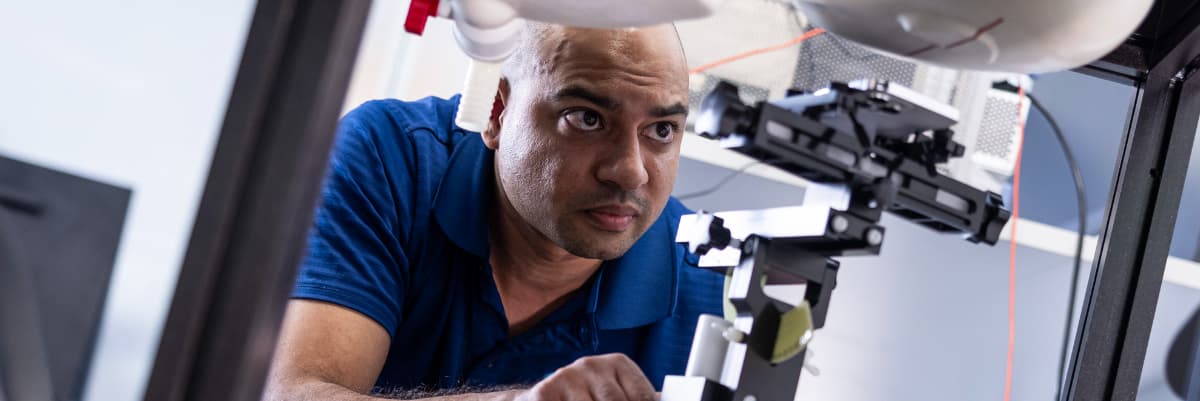
Industry-Leading Expertise
State-of-the-Art Technology
Comprehensive Testing Range
Custom Solutions Focus
Frequently asked questions
What sampling containers do you provide for gas testing?
Element provides specialty sampling containers for pressurized gas and liquid samples, as well as inert sampling bags specifically designed for low-level sulfur samples.
What types of hydrocarbon analysis do you perform?
We perform analyses ranging from basic natural gas composition to extended analysis (C12+, C15+), including heating values, density, pseudocritical properties, and petroleum liquid content.

Explore our global network of labs and find your nearest location
VIEW ALL LOCATIONSRelated services
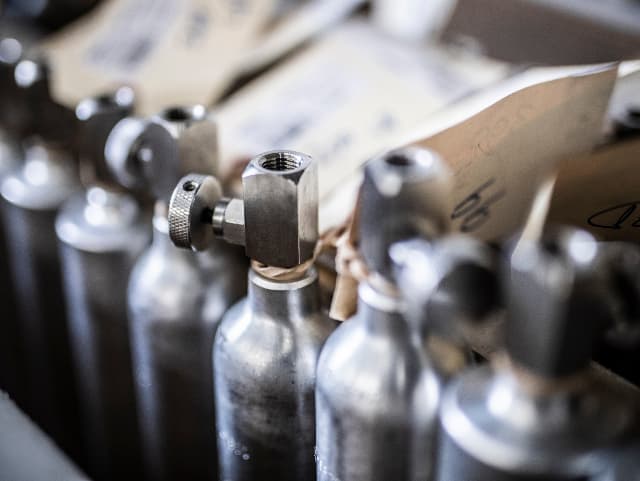
Specialty Gas Calibration Standards Services
We produce NIST-traceable calibration gas standards to address measurement accuracy and compliance. Our quick turnaround, cost-effectiveness, and expert support deliver consistent, reliable solutions for your gas analysis needs.

Oil and Gas Testing
Element offers a wide range of Oil & Gas testing services, including mechanical and NDT testing, structural and corrosion testing, and failure analysis. Learn more.
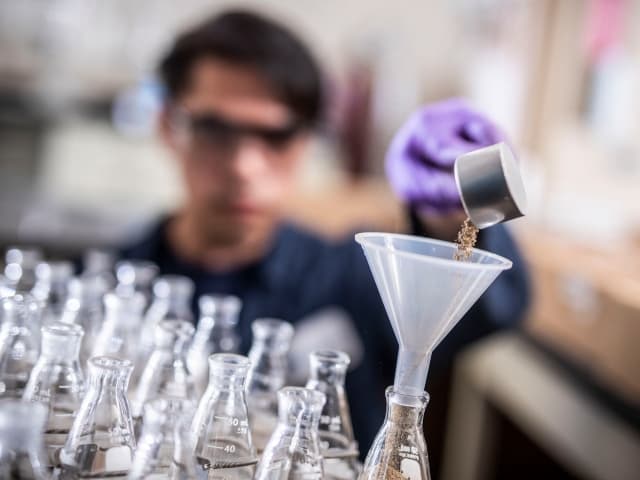
Hydrocarbon Testing
Need reliable hydrocarbon testing? Element delivers precise analysis of water and soil samples to ensure regulatory compliance and prevent environmental issues. Our advanced labs provide fast, accurate results for all your testing needs.
